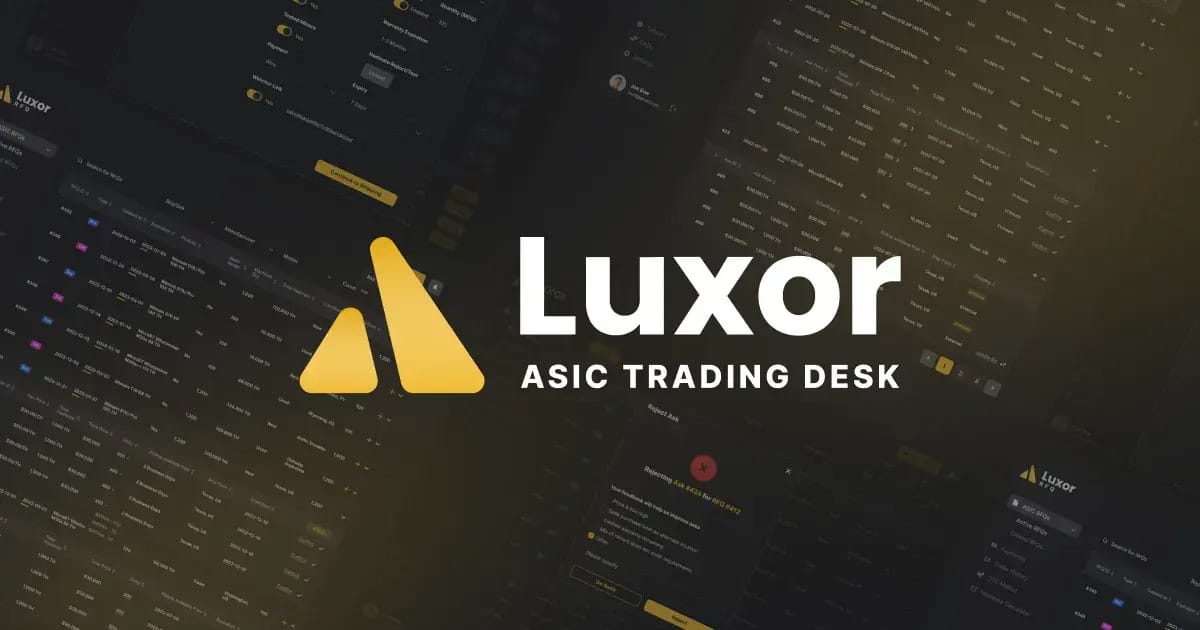
18 February 2025 · Block Height 882509 · Bitcoin Price $96K
Happy Tuesday!
U.S. states have been proposing strategic bitcoin reserves at a dizzying pace since the start of the new year. So for today’s newsletter, we go through each bill one by one to explain what they propose and their status in the approval process.
NiceHash has moved to Switzerland, offering institutional miners a secure, compliant, and transparent platform to manage and maximize their mining output – delivering the reliability and performance expected from the best mining pools.
Contact a NiceHash representative at [email protected]
These 23 states have strategic bitcoin reserve bills
A single, federal-level strategic bitcoin reserve would be cool, but you know what would be even cooler? 50 state-level ones.
Ok, so we’re not quite at 50 yet. But since we published our first article on state proposals for strategic bitcoin reserves, many more states have lined up to buy our bags introduced legislation to establish a bitcoin/digital asset stockpile.
So far, legislatures from 23 states have introduced bills to establish strategic bitcoin reserves, and they come in plenty of sizes and flavors. Some allow for more aggressive allocations, others more conservative ones, and others rely on donations alone; some have provisions to allow the government to stake digital assets and/or lend them out (uh oh, call your resident bitcoin maxi, we smell s***coinery…); others give legal protections for self custody (yes please!); and some even provision for citizens to pay taxes in bitcoin (lol can you imagine?).
Source: Bitcoin Laws
Some of these bills are already dead, while a few others are speeding their way through the approval process.
(We’d like to give a big shoutout to Julian Fahrer, whose Bitcoin Laws website makes tracking these bills a breeze).
Arizona (Senate Bill SB1025)
Passed by Senate Committee of the Whole on February 12, 2025, moved to Senate for formal vote
Allows any Arizona public fund to invest up to 10% of its holding in virtual currencies if the U.S. Federal Government establishes a strategic bitcoin reserve per Senator Lummis’ BITCOIN Act.
Brought to you by Luxor
Get the best priced machines.
Looking for new or used mining hardware? Luxor’s ASIC Shop offers the best prices, global shipping, and trusted service. Reach out to their team at [email protected] for bulk orders.
Montana (House Bill HB 429)
Introduced February 7, 2025, still in committee
Allows the state treasurer to invest up to $50 million from the general fund in cryptocurrencies, stablecoins, and precious metals held by a qualified custodian or via an exchange-traded fund (ETF), so long as those investments have a market cap equal to or greater than $750 million. If signed into law, the act would be effective July 1, 2025.
South Dakota (House Bill HB1202)
Referred to the House Commerce and Energy committee on February 7, 2025
Description: Permits the State Investment Council to invest up to ten percent of investible state money into bitcoin, either directly with a qualified custodian or indirectly via an ETF. In the case of direct bitcoin holdings with a qualified custodian, lays guidelines for secure and redundant storage.
Utah (House Bill HB0230)
Passed in the Utah House, moved to Senate committee on February 7, 2025
Would permit the state to invest up to 10% of investible money from multiple funds into digital assets; also establishes regulatory requirements for stablecoin allocation. Authorizes state treasurer to stake and lend digital assets under certain conditions. Creates legal guarantees for self custody and commerce using digital assets, and prohibits requiring a money transmitter license for node operators, developers, and for entities operating “a business or decentralized protocol that effectuates the exchange of one digital asset for another digital asset and does not exchange digital assets for legal tender or bank deposits.”
New Mexico (Senate Bill SB 275)
Sent to Senate Tax, Business, and Transportation Committee on February 4, 2025
Permits the state treasurer and state investment fund to allocate up to 5% of total public funds from each of the following: land grant permanent fund, severance tax permanent fund, tobacco settlement permanent fund, any other fund “deemed appropriate by the state investment council.” Bitcoin can be held directly by the state via “a secure custody solution,” by a qualified custodian, or in an ETF, and the government can loan bitcoin for returns in ways that do not increase “financial risk of the state.” Also allows for state retirement funds to invest in bitcoin ETFs and for citizens to pay taxes in bitcoin. Would be effective on July 1, 2025.




